FADU Technology’s NVMe SSDs go faster and use less power than competing drives thanks to hardware-accelerated controllers and a redesigned flash translation layer.
Based in Korea, FADU Technology is a fabless semiconductor company that claims to have greatly improved SSD controller technology with its Annapurna design.
The technology is incorporated into FADU’s Bravo SSD. The company claims Bravo achieves >30 per cent less power consumption with >100 per cent better IOPS. Bravo is faster than Samsung Z-NAND and Optane 3D XPoint M.2 drives, according to FADU, which has provided some numbers to support its claim.
Hyperscaler companies and SSD vendors can use the controller to build their own branded drives.
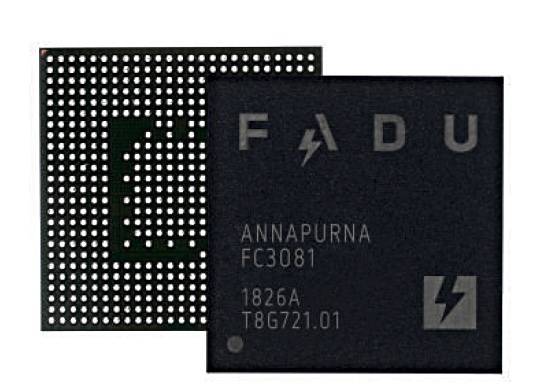
The Annapurna controller uses a RISC-V processor with added hardware to remove bottlenecks in existing SSD controller designs, and lower power consumption.
The Bravo SSD uses the controller to control 64-layer 3D NAND and is available in 1, 2, and 4TB M.2 drives and 1,2, 4 and 8TB U.2 (2.5-inch) SSDs, both using PCIe gen 3 with NVMe 1.3a. It comes in a -P form for performance and -E version for longer life.
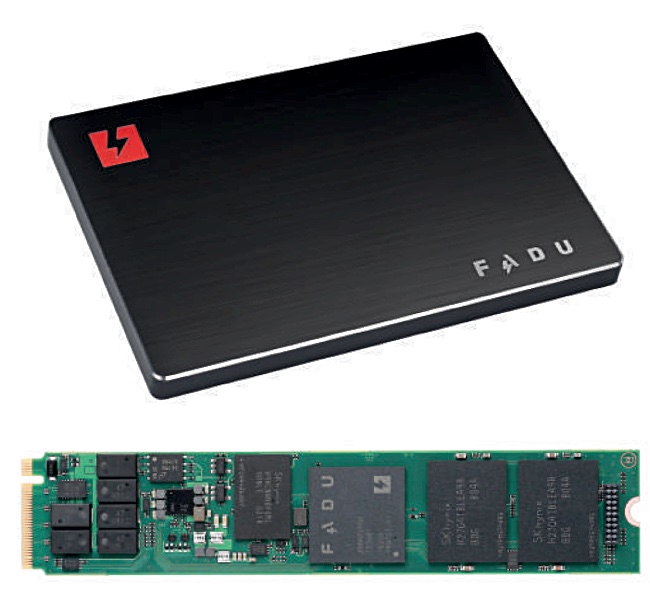
We look at the M.2 P version here and see how it compares to Intel, Samsung and Seagate options.
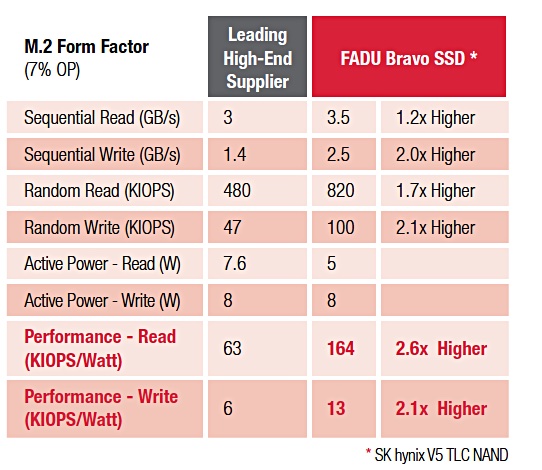
We can chart the sequential IO and random IOPS data to better visualise the differences:
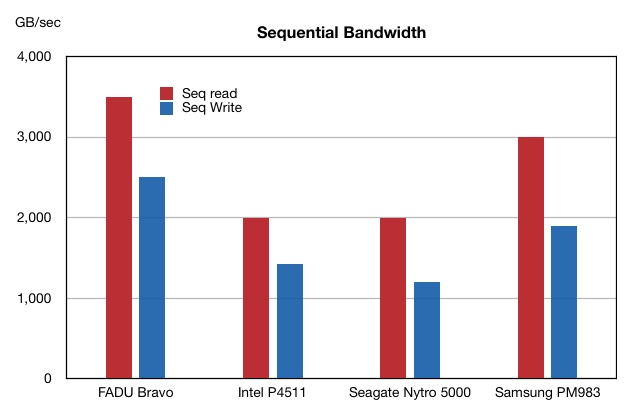
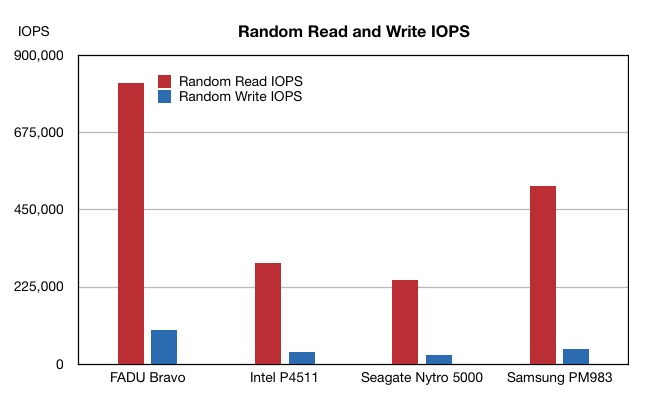
The Bravo M.2 drive’s latency is 15µs Read/Write; it’s 80µs Read/Write with the U.2 version.
Endurance is one drive write per day for five years, with two million hours MTBF rating.
Development plans include:
- Support of QLC (4bits/cell) flash
- Bravo SSD built with Toshiba low-latency XL flash; Toshiba’s version of the Samsung Z-NAND tech, 3.5GB/sec read, 3.2GB/sec write, 800K>290K random read/write IOPS
- Charlie series Everest controller; PCIE 4.0 x4, 7GB/sec read, 6.3GB/sec write, >1.6m/>700K random read/write IOPS,
- Delta series Everest Plus controller; PCIE 4.0 x8, >10GB/sec read, >10GB/sec write, >2m/>1m random read/write IOPS.
These are ambitious numbers.
FADU said it has partnerships with Micron, SK hynix and Toshiba, and is in various stages of qualification at two hyperscale vendors and one large OEM. This adds credibility.
FADU will be present at the August 6-8 Flash Memory Summit, in Santa Clara.







